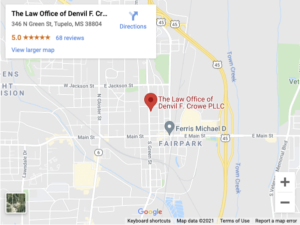Do I Have to Go to Court?
Yes, but in the hands of an experienced bankruptcy attorney, there is nothing to fear. First off, if there wasn’t a big problem in your situation, you probably wouldn’t be filing bankruptcy. Second, an experienced bankruptcy attorney has handled hundreds if not thousands of court appearances. They know what to do and how to prepare you so that you don’t get yourself in trouble. With the help of an experienced attorney in the vast majority of cases, the Court appearance is nothing more than a formality. Whether filing a Chapter 7 or 13 bankruptcy, you must attend this court appearance, which is more correctly referred to as the meeting of creditors. In fact, it is not really a Court appearance at all because the bankruptcy judge is not even allowed to be there. The purpose of the meeting is to allow the trustee, a non-judicial court-appointed official, to question you about your assets and liabilities. The trustee administers the meeting and it’s the trustee’s job to verify the completeness and accuracy of the information listed on the documents you filed with the bankruptcy court. The trustee is sort of like a bookkeeper/gatekeeper for the court. The trustee is also appointed to determine if you have property that exceeds the amount you can protect using available state and federal exemptions. This meeting usually takes place about 25 to 45 days after the filing of your case. The meeting is informal and in most cases lasts 5 to 15 minutes. However, since there may be up to a hundred other cases on the date of your meeting, you should plan on missing work for the entire day. However, most of the day will be waiting your turn. When your case is called, you must first present a photo ID and social security card. Attendance at the 341 meeting of creditors is mandatory. You cannot get a discharge without attending one of these meetings, except in the rare situation where you are permitted to “attend” by answering written questions, which are called “interrogatories.” However, interrogatories are only permitted in rare cases such as if you are in the military deployed out of the country. While your creditors still have a right to appear at the meeting and ask questions regarding your debts, most of them don’t because there is really very little they can do to change the outcome.
What happens at the meeting?
At the meeting, the trustee will ask you questions regarding the documents filed on your behalf. Basically, the purpose of this meeting is to ensure that you have disclosed all your assets and debts and made full disclosure with respect to information concerning your financial history.
Here is a sample of a few questions that may be asked at a Chapter 7 meeting:
- What is your name and address?
- Did you review the bankruptcy petition with your attorney before filing?
- Did you list all of your debts?
- Did you list all of your assets?
- Are the schedules true and accurate to the best of your knowledge?
- Are there corrections that need to be made?
- Have you ever filed a bankruptcy?
What about in a Chapter 13 case? Generally, the Chapter 13 trustee will ask the same questions as a Chapter 7 trustee. However, in Chapter 13 the trustee will generally ask some additional questions. Chapter 13 is much more complicated than Chapter 7 and involves a fairly complex plan of repayment that extends over a period of 3 to 5 years. The extra questions usually center around the proper formulation and feasibility of your proposed Chapter 13 plan.



